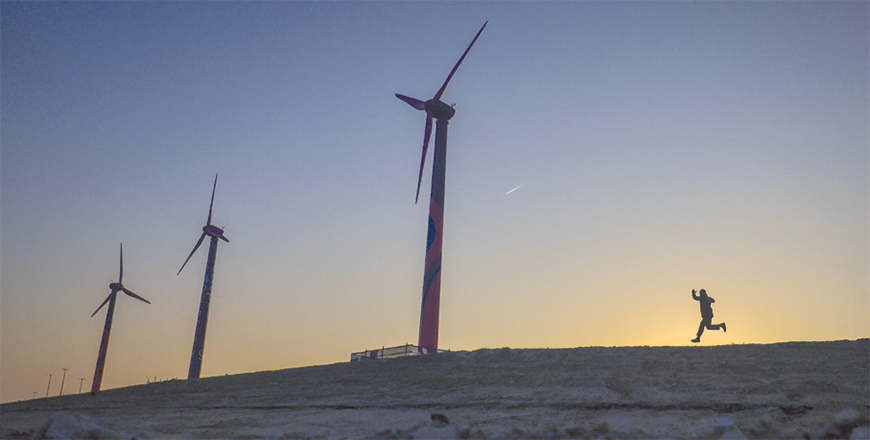DUBAI — With 2023 confirmed to be the hottest year on record by Europe's climate monitor, the temperature was also rising Wednesday on negotiators thrashing out the thorny issue of fossil fuels at COP28 in Dubai.
Pressure for progress is mounting as the UN climate talks near the end of their first week, with the latest draft of a global climate agreement "probably" expected on Wednesday before it is finalised, in theory, on December 12, said one observer.
The fate of oil, gas and coal, the main drivers of human-caused planet heating — has been the biggest sticking point on the agenda and divisions around their future have dominated the conference.
The situation is "very dynamic", one negotiator said on Tuesday evening, as representatives of nearly 200 countries haggle over the text that responds to a damning stocktake of progress on limiting warming.
Battle lines have previously been drawn on whether to agree to "phase out" or "phase down" fossil fuels.
A new phrase committing to an "orderly and just" phase-out of fossil fuels could signal a consensus candidate, giving countries different timelines to cut emissions depending on their level of development and reliance on hydrocarbons.
But there is another option: no mention at all of fossil fuels, which reflects opposition from nations including Saudi Arabia, Russia and China, according to several observers who attended the closed meetings.
India on Tuesday evening also opposed naming specific sectors or energy sources, one observer said.
The Paris Agreement that emerged from COP21 in 2015 was a “great success for all of us”, Saudi Arabia’s Chief Climate Negotiator Khalid Almehaid told the Atlantic Council’s Global Energy Forum on Tuesday.
“The challenge that we have today is how can we keep that train with all of its passengers,” he added, alluding to the kingdom’s objection to phasing down fossil fuels.
But some of the countries that are most vulnerable to climate change on Wednesday urged called for a harder stance on fossil fuels.
The Alliance of Small Islands States “calls on major emitters to enhance their commitments, including... leading the way on fossil fuel phase out, phasing out all fossil fuel subsidies, and ensuring peaking of global emissions before 2025 and halving them by 2030,” the group’s chair Cedric Schuster said in a statement.
As it stands, the draft agreement includes options to phase out fossil fuels or not address the issue at all, setting the stage for tough negotiations due to end next week.
Climate experts, however, have warned that global warming could breach the 1.5ºC Paris deal limit within seven years if emissions are not slashed.
The new draft of the negotiated text expected on Wednesday must be brought to a large plenary meeting taking stock of the first week of talks ahead of a rest day on Thursday.
Meanwhile, 2023 has seen a series of devastating extreme weather events linked to climate change, even as the world’s carbon emissions continue to rise.
Europe’s climate monitor on Wednesday said this year will be the hottest in recorded history after November became the sixth record-breaking month in a row.
‘Temperature will keep rising’
Last month smashed the previous November heat record, pushing 2023’s global average temperature to 1.46ºC warmer than pre-industrial levels, the EU’s Copernicus Climate Change Service said.
There had been previous warnings this year could take the title of hottest year from 2016, particularly after records toppled in September and October, but this marks the first time it has been confirmed.
November also contained two days that were 2ºC warmer than pre-industrial levels. Not one such day had ever before been recorded.
Samantha Burgess, deputy head of the Copernicus service, said that 2023 has “now had six record-breaking months and two record-breaking seasons”.
“The extraordinary global November temperatures, including two days warmer than 2ºC above pre-industrial [levels], mean that 2023 is the warmest year in recorded history,” she said.
Copernicus head Carlo Buontempo said that “as long as greenhouse gas concentrations keep rising we can’t expect different outcomes”.
“The temperature will keep rising and so will the impacts of heatwaves and droughts.”
